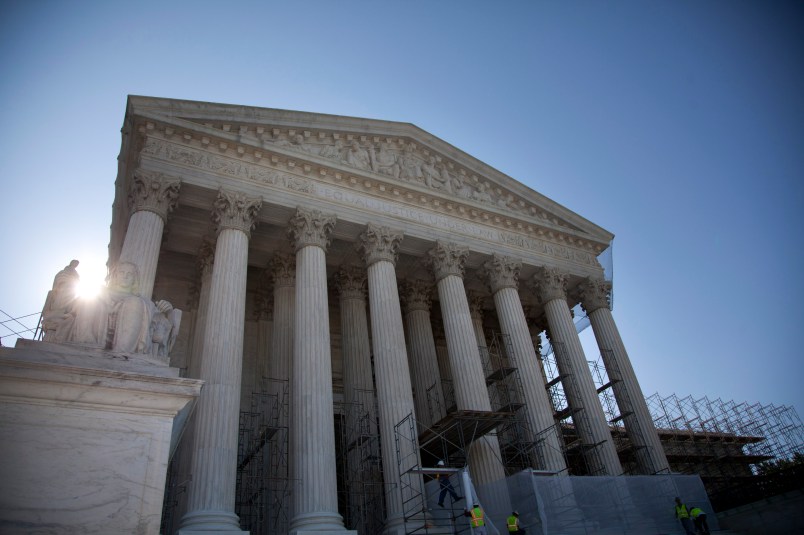The Supreme Court put North Carolina’s restrictive voting law back into effect on Wednesday.
The justices reversed a move last week by the 4th Circuit Court of Appeals to block provisions of the law — which scrapped same-day registration amid early voting periods and invalidated votes cast outside an assigned precinct — from taking effect. A divided appeals court panel had determined that the provisions would “adversely” affect African-American and minority voters.
Justice Ruth Bader Ginsburg, joined by Justice Sonia Sotomayor, dissented from the Supreme Court’s decision, siding with the 4th Circuit’s decision to block parts of the law. “North Carolina places heavy reliance on the fact that African-American turnout during the 2014 primary election … increased compared to the 2010 primary election,” Ginsburg wrote.
The Supreme Court’s order is temporary, and gives the state of North Carolina time to appeal to the justices for a final ruling. The law will remain in effect until the justices either review the case and make a decision, or turn it down (and let the appeals court have the last word).
For now, that means the voting restrictions are likely to remain in effect for the midterm elections. That could impact the reelection hopes of Sen. Kay Hagan (D-NC), who is relying more on minority voters than her Republican opponent.










